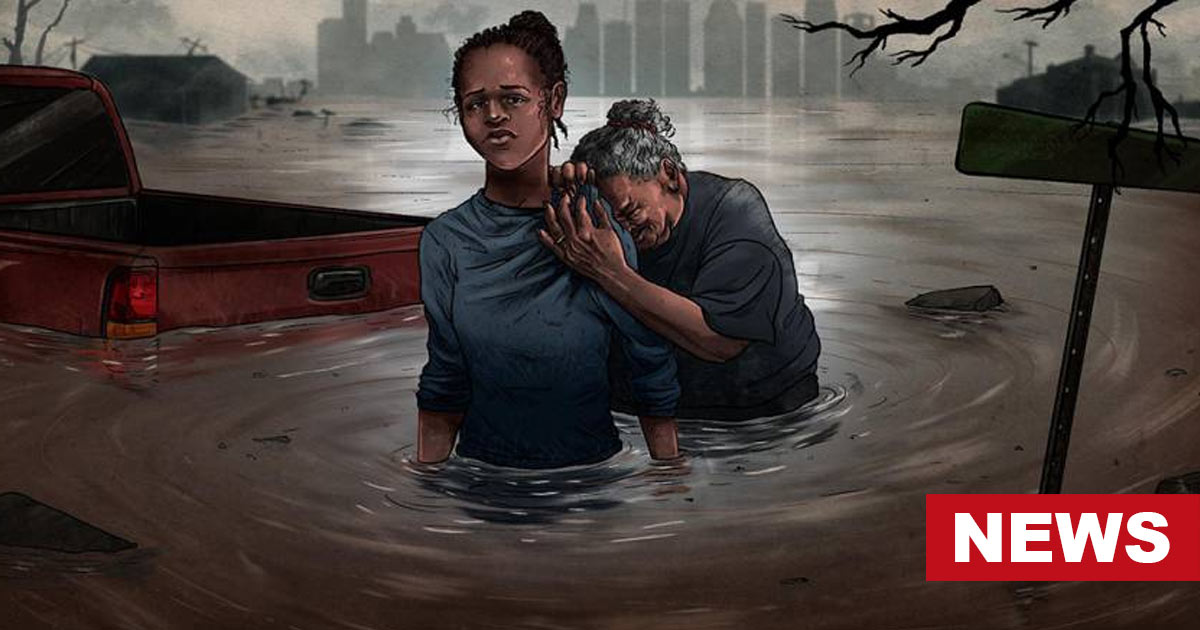Natural disasters cause homelessness frequently. Hurricanes, floods, earthquakes, and wildfires often result in the displacement of individuals from their homes. The destruction of housing infrastructure, coupled with the loss of belongings and limited access to essential services, exacerbates the risk of homelessness.
Disasters can disrupt entire communities, leaving individuals and families without stable shelter, and compounding existing housing vulnerabilities.
Is Homelessness Increasing With Climate Change?
As the frequency and intensity of natural disasters continue to rise due to climate change, the risk of homelessness also increases. Displaced individuals often struggle to find alternative housing options, especially if their financial resources are already limited.
Studies have shown that areas prone to climate-related disasters, such as coastal regions, are more likely to experience increased homelessness rates. Rising sea levels, extreme weather events, and prolonged droughts all contribute to the vulnerability of housing infrastructure and increase the likelihood of homelessness after natural disasters.
Insecure Housing After Natural Disasters And Mental Health
Previous research claims that environmental inequality manifests in poor housing after natural disasters. One of the serious consequences of these disasters is homelessness and its associated stress and trauma.
For example, state-funded research in disaster-prone areas in Australia revealed that the devastating 2009 Black Saturday bushfires resulted in the loss of 173 lives and the destruction of more than 2,000 homes.
Similarly, the Black Summer bushfires in 2019–20 claimed 26 lives and destroyed nearly 2,500 homes. Additionally, the triple La Nina weather phenomenon from 2020–2022 caused widespread flooding along the east coast, resulting in 23 fatalities and an estimated A$4.8 billion in property damage.
While the physical damages of these disasters appeared quantifiable in statistics and emergency resources, its mental health damages remained hidden.
The long-running HILDA survey in Australia strove to understand the long-term mental health consequences associated with homelessness and emergency housing after natural disasters. Housing loss and housing affordability stress impacted 30–42% of people who experienced a natural calamity.
They were also found to develop greater vulnerability to PTSD, depression, anxiety, and substance abuse. In fact, affected individuals continued to experience deteriorated mental health, emotional well-being, and social functioning for an additional two years after the natural disaster.
The ongoing shortage of housing and rental properties, as well as the financial insecurity in the aftermath of natural disasters (such as anxiety about the cost of temporary housing after natural disasters) aggravate mental health symptoms in the survivors. The lack of readily affordable mental health care resources in areas reeling from devastation leaves these mental health disorders undiagnosed and untreated.
Policies For Homelessness After Natural Disasters
Efficient and comprehensive policies are crucial in addressing post-disaster homelessness. Collaboration among governments, non-profit organizations, and communities is necessary to provide immediate emergency shelter, basic necessities, and long-term solutions.
Rapid response teams can offer temporary housing options while permanent housing is developed, accompanied by readily available supportive services for mental health.
Preventive policies for homelessness, such as investing in disaster-resistant infrastructure and early warning systems, alongside comprehensive disaster management plans, are vital.
Long-term strategies should prioritize affordable housing initiatives, strengthened social safety nets, and improved access to education and employment opportunities to prevent homelessness in vulnerable communities.

























